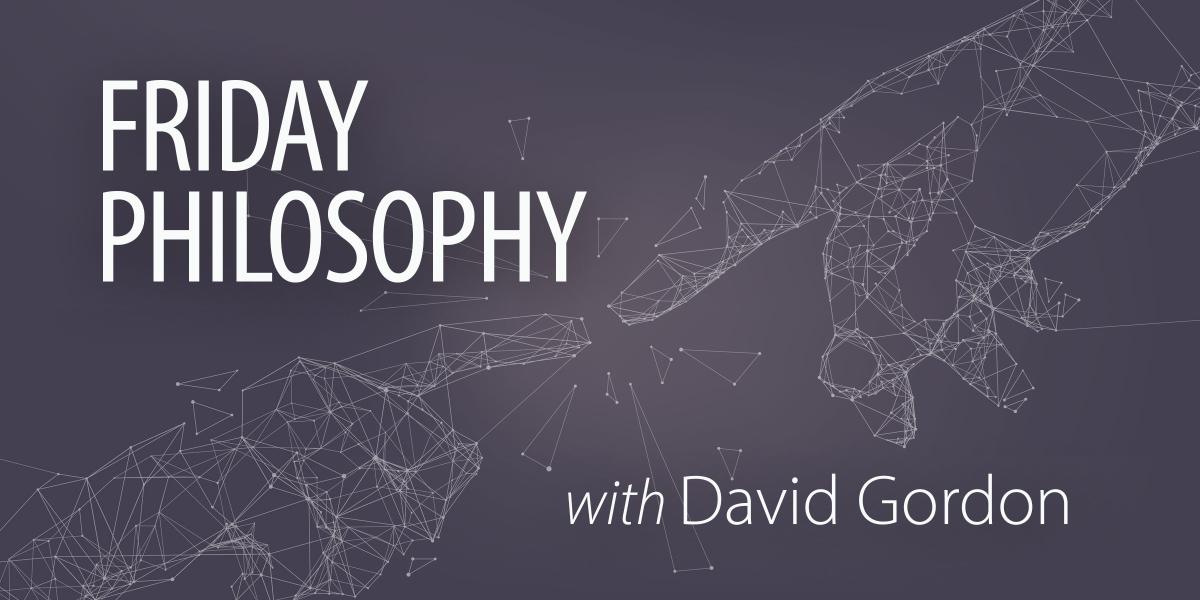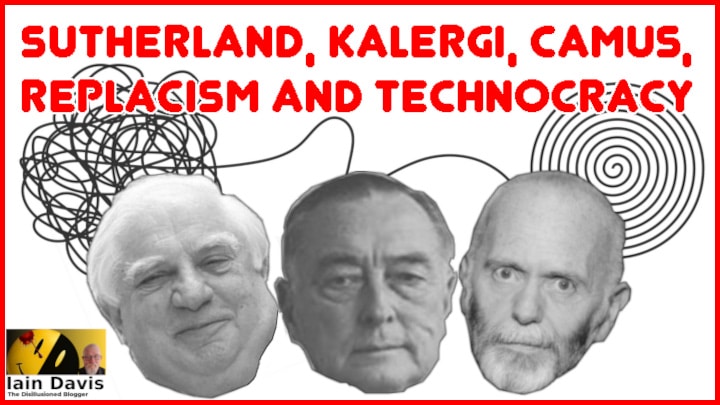
Is There a Praxeological Ethics?
Praxeological Ethics: An Inquiry into the Nature and Foundation of Ethics
by J.W. Rich; (Independently published, 2024, 153)
I met J.W. Rich when he was a student last month at Mises University, and he mentioned to me that he was working on a book about praxeological ethics. He has now sent me the book, and it is very impressive indeed. It is remarkable in its scope, and in what follows I’ll indicate some points of the many insightful points in the book as well as a few places where the argument moves too quickly.
“Praxeological ethics” appears to be a contradiction in terms, in that praxeology—Ludwig von Mises’s science of human action—was conceived by him to be a value-free science, but one can hardly speak of a value-free ethics. (Rich does not distinguish between the terms “morality” and “ethics,” and I shall follow his usage here.)
Rich’s interesting response is that the gap between factual judgments and value judgments is less than most people think:
All of this is not to say that there is no real difference between the statements “I had a sandwich for lunch” and “Murder is wrong.” The two statements are obviously not making the same kinds of claims and there is some degree of difference that should be noted. There is a difference, but the difference is much less dramatic than what is commonly assumed. The traditional positive/normative split separates the two types of statements completely and emphasizes that they are fundamentally and totally different.
Rich has answered a question that has not been asked and lacks meaning. Talk of an “is-ought” gap does not assume that there is a physical gap measurable in units between “is” and “ought” statements—what would that mean?—but that there appears to be a categorical difference between the two that precludes deriving an “ought” statement (normative) from an “is” statement (empirical).
Not so, says Rich. There is no categorical difference between the two types of statements:
The better question to ask is: how can we go from an “is” statement to an action statement? Through understanding the ends aimed at by an individual, and an evaluation of the best means to attain that end. The end aimed at is the fact at hand: the “is” statement. That I wish to achieve something is a description of the world—specifically, a description of my own mind and desires. We can transform this into an action statement by finding means that help attain my end sought after, at which point one can say that I “ought” to employ these means to attain my end. The fact becomes the action, and the “is” becomes the “ought.”
This argument does not succeed, as we can see by looking at “murder is wrong.” It is easy to describe the bad consequences for a society if there were no social sanction against murder and to say that because of these bad consequences that people who don’t want to live in such a society are well-advised to refrain from murder, but this is not what “murder is wrong” means. On its face, it is exactly what Rich says it isn’t, a statement categorically distinct from factual statements about the bad consequences of socially unsanctioned murder.
I am glad to turn to areas where I agree with Rich. In response to the claim that “there are certain important functions necessary for society to operate that cannot be provided apart from the state,” Rich says that these functions have in fact been provided by private actors apart from the state:
For example, the construction of roads—a task assumed to be only possible by the state—were financed in the past through a bevy of non-state means. One such method was employed in the 18th and 19th centuries…turnpike organizations would finance the construction of new roads through the sale of “stock,” which all members of a community were expected to purchase. The pooled funds these stock purchases raised are not just anachronistic solutions, either. Economic scholarship has shown how roads could be profitably produced by companies in the modern world.
Rich digs deeper and uncovers a fundamental conceptual point that eviscerates the argument that the free market cannot produce a sufficient quantity of public goods. There is no way, he says, to determine what the “sufficient” amount is supposed to be:
The inability of the state to utilize profit or loss gives rise to what Ludwig von Mises referred to as the “Economic Calculation Problem.” Mises raised this problem specifically in the context of socialist economic planning, but it applies to all state-provided goods and services. Just as the state cannot rationally plan an economy without profit or loss, it also cannot rationally run police stations, highways, or courthouses.
Elaborating on the point, Rich moves in for the kill:
Of course, if we have no method of evaluating the “sufficient” quantity of a good to be supplied outside of profit/loss, then any claim of the market’s “inefficient” supply of public goods can be met with a simple question: insufficient compared to what?
Those who argue that we need the state to provide public goods will, if pushed to the wall by free market arguments of the sort raised above, raise the specter of invasion of a territory by a foreign foe. Without the state, what chance is there to repel an invasion? In response, Rich presents a historical example where private action did compel an invader to withdraw: “During the Second World war, the forces of Nazi Germany were compelled to withdraw from Yugoslavia without the help of any outside Allied forces. This was because the guerilla fighting from the Slavic peoples was so intense that the Axis armies found themselves unable to effectively hold onto Yugoslavia.”
I shall conclude with one further insight from this remarkable book. In good Rothbardian fashion, Rich contrasts the attitudes of the state and private actors in the free market to punishment:
We [free market actors] are principally interested in reversing the effects of the crime, even if we are limited in our ability to do so. The state’s view of punishment is primarily focused on the criminal.
I hope that readers will give Praxeological Ethics the attention it deserves, even if, like me, they think the case that ethics rests on praxeology remains unproved.
Originally Posted at https://mises.org/
Stay Updated with news.freeptomaineradio.com’s Daily Newsletter
Stay informed! Subscribe to our daily newsletter to receive updates on our latest blog posts directly in your inbox. Don’t let important information get buried by big tech.
Current subscribers:



